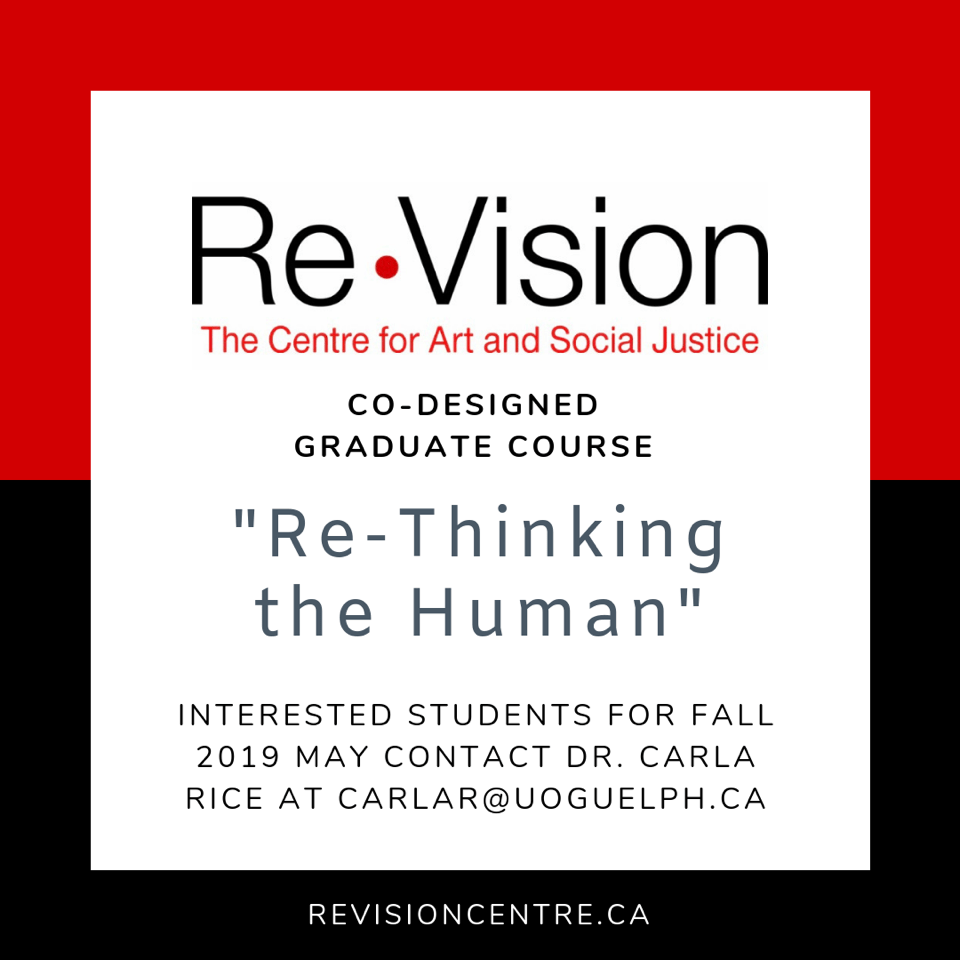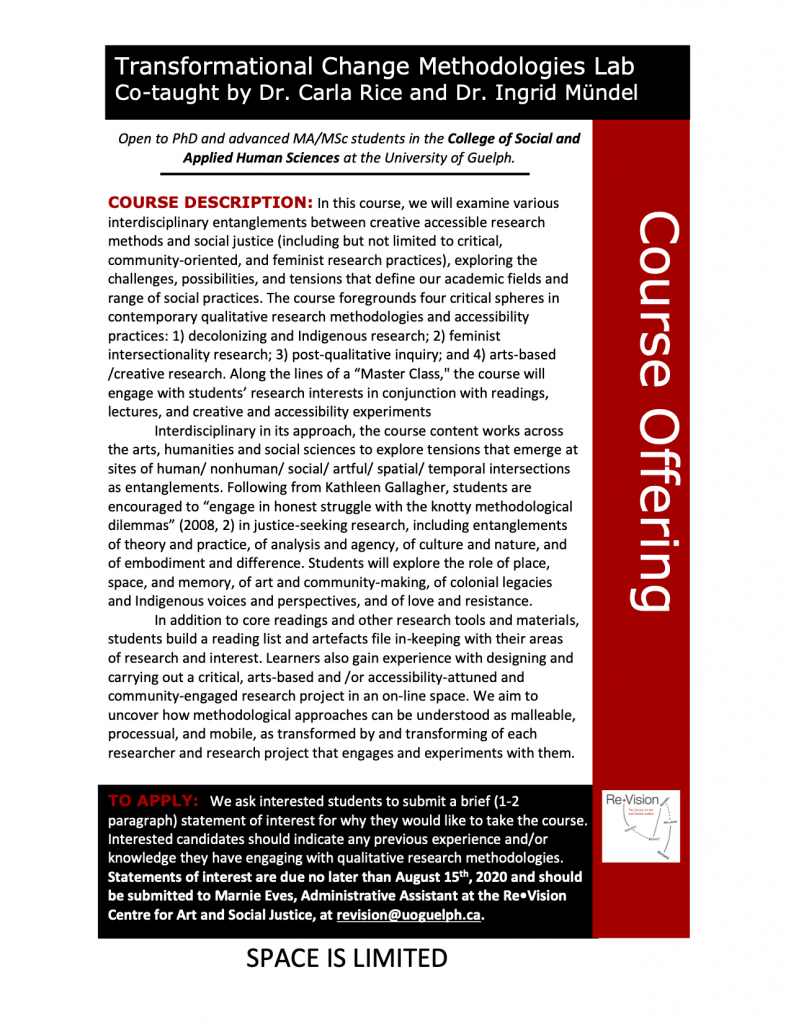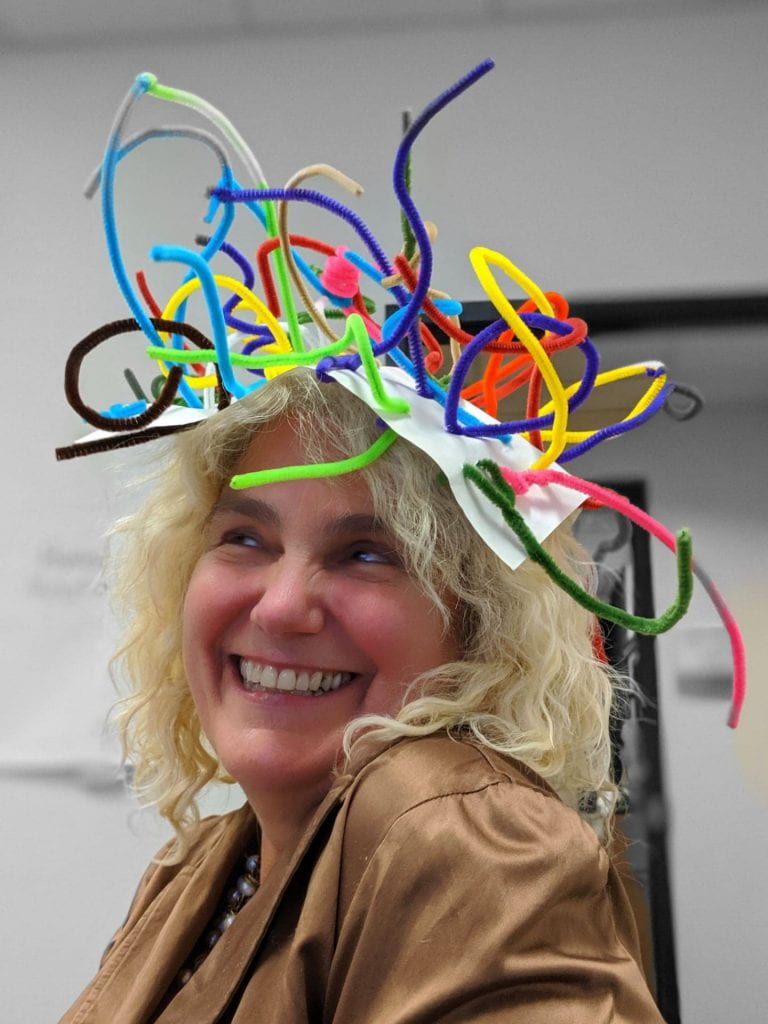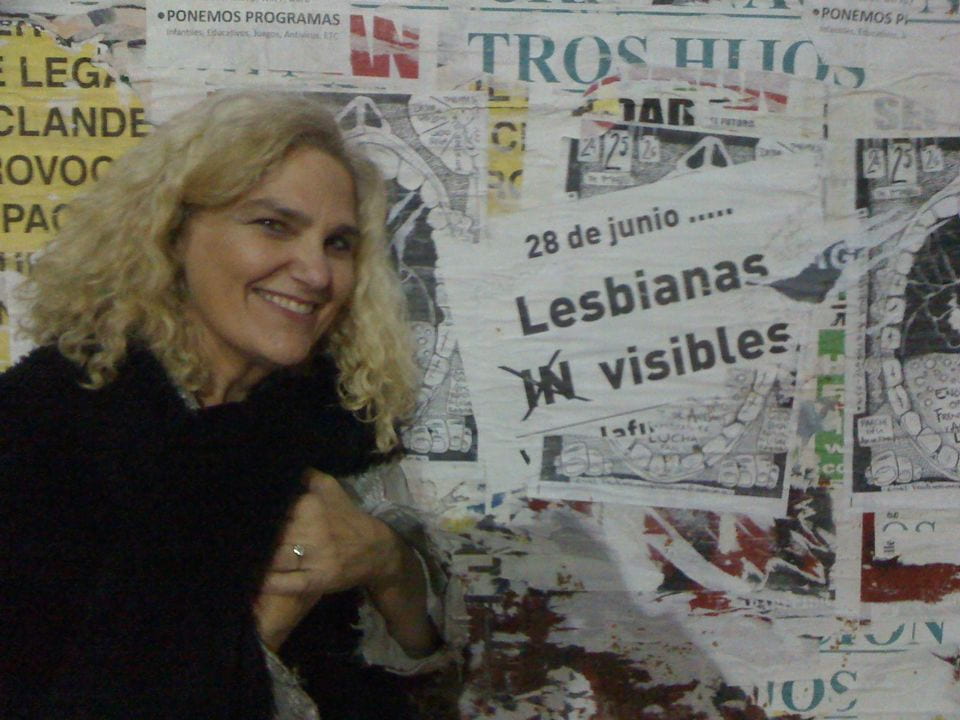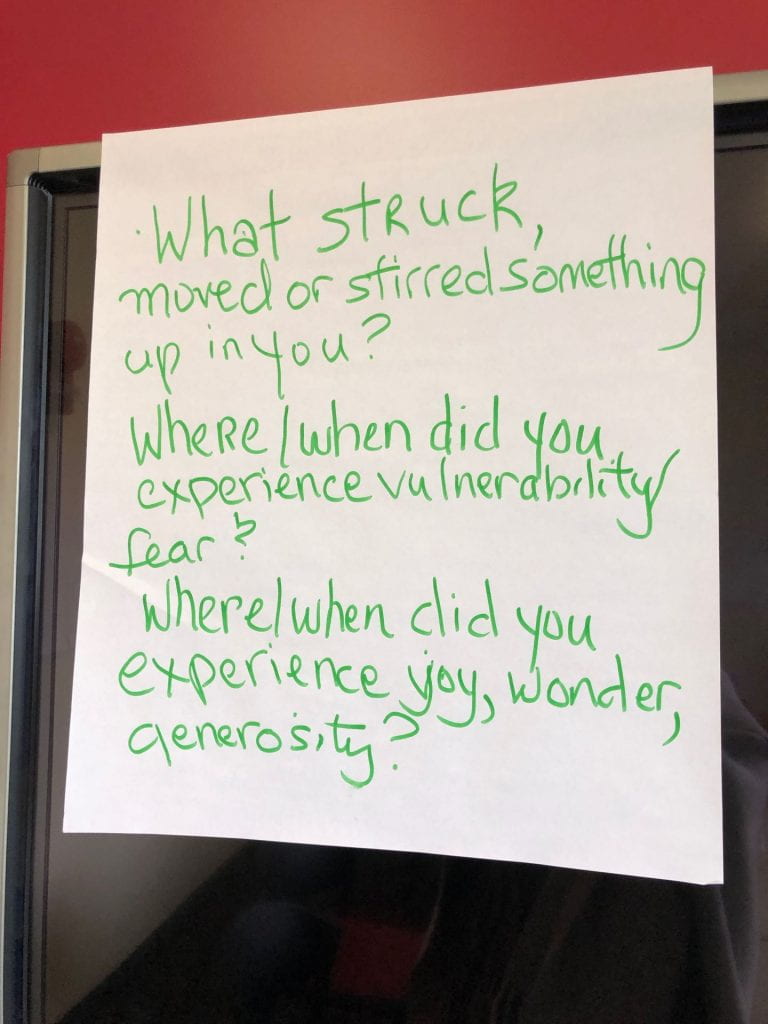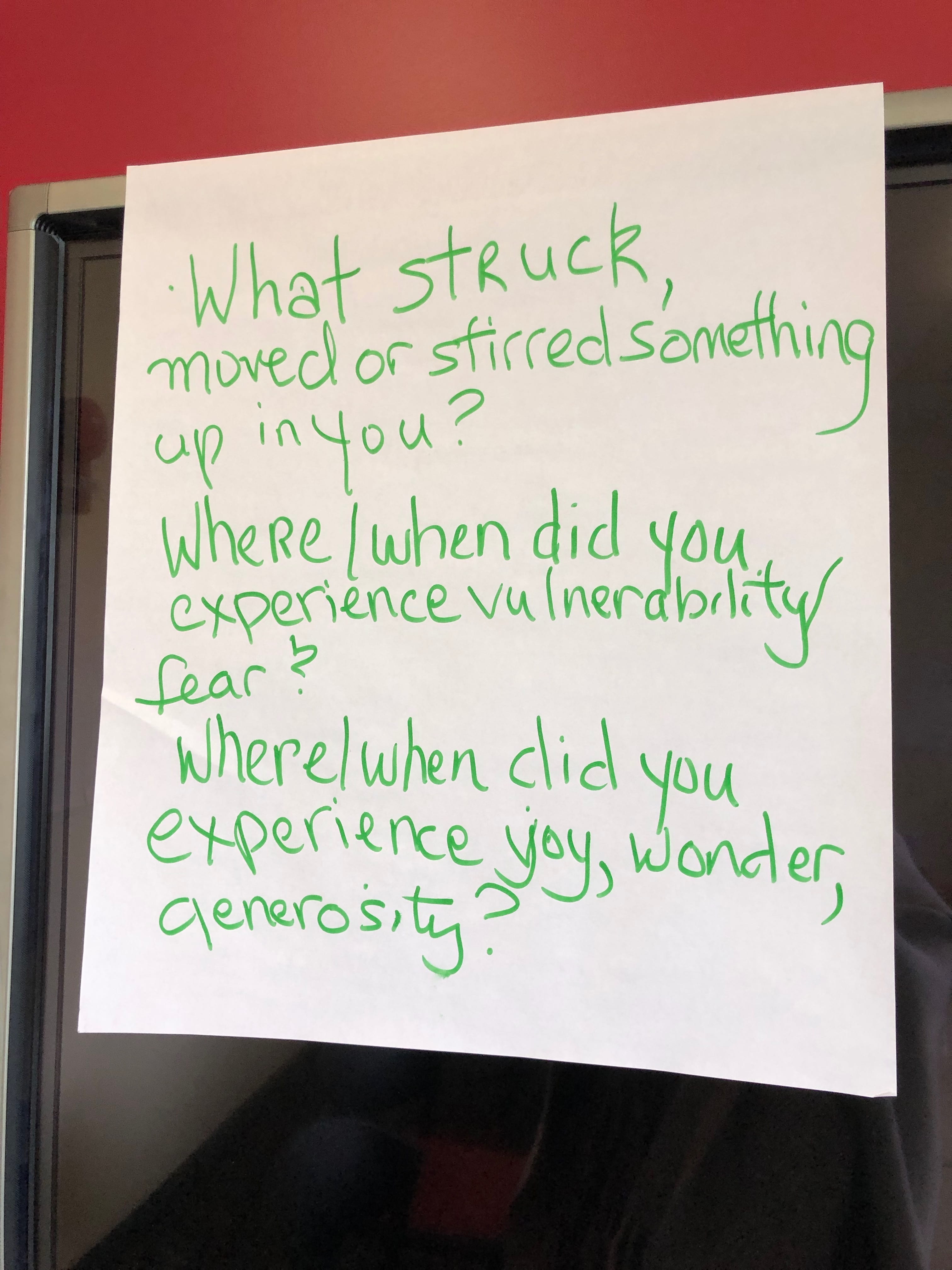Academic Appointments
2021
Tier 1 Canadian Research Chair in Feminist Studies and Social Practice, University of Guelph
2017
Founder, Academic Director of Re•Vision: The Centre for Art and Social Justice, University of Guelph
2015
Full Professor, Family Relations and Applied Nutrition, College of Social and Applied Human Sciences, University of Guelph
2011
Tier 2 Canada Research Chair in Care, Gender, and Relationships, University of Guelph
Associate Professor, Family Relations and Applied Nutrition, College of Social and Applied Human Sciences, University of Guelph
Associate Professor, University of Toronto, Dalla Lana School of Public Health, Faculty of Medicine
2008
Associate Professor, Department of Gender and Women’s Studies, Trent University
2004
Assistant Professor, Department of Gender and Women’s Studies, Trent University
Teaching Awards
College of Social and Applied Human Sciences Faculty Teaching Award
This award recognizes excellence and innovation in teaching. Five graduate students, two faculty members and two research collaborators commented on Carla’s “outstanding” and “profoundly paradigm shifting” modes of instruction and skill and talents as a “gifted”. “dedicated” “brilliant” and “exceptional” teacher. Students initiated the nomination for this award for Carla’s innovation of a graduate interdisciplinary theory course “Becomings: Emerging Directions and Critical Dialogues in Gender, Sexuality and Human Development”, which Carla co-created and co-taught as an experiment in graduate-level participatory education. Learners included nine graduate students from across the social sciences and humanities. University of Guelph, 2014-2015.
Feminist Mentorship Award
Individuals nominated for this award are considered not only leaders in their field, but exceptional mentors to future leaders in the field, The Canadian Psychological Association’s Section for Women and Psychology (SWAP), 2013-2014.
Trent Merit Award for Excellence in Research and Teaching
Award for demonstration of exemplary teaching and/or research (received both); candidates selected through faculty nomination process, Trent University, 2008-2009.


